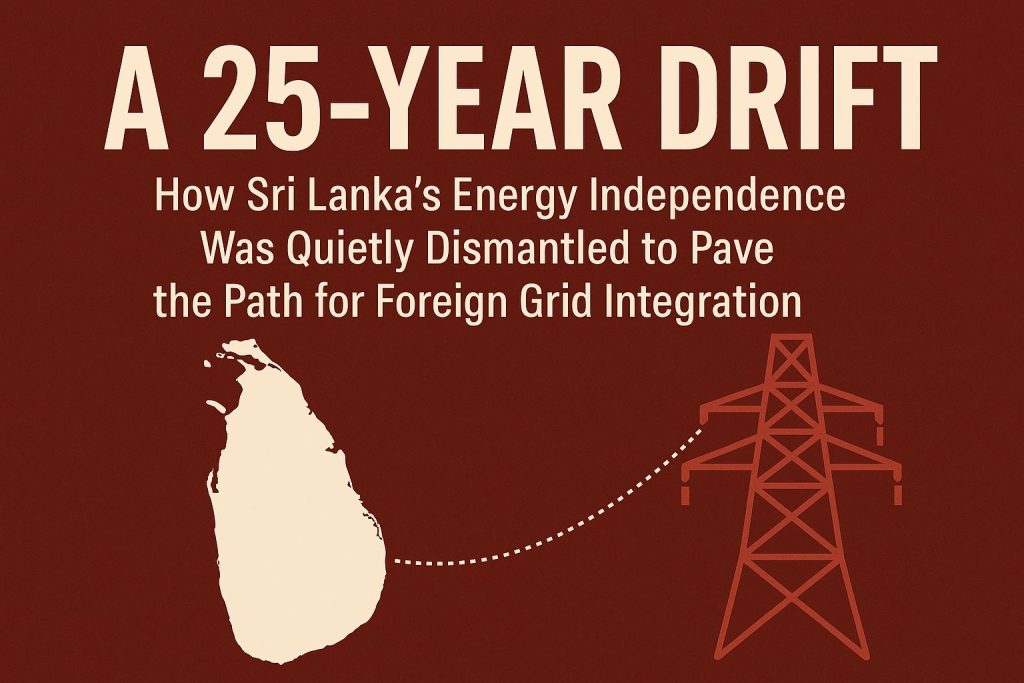What if I told you that Sri Lanka hasn’t had control over its electricity future for years—and no one noticed?
This isn’t fiction. It’s the quiet undoing of national independence through energy policy.
For 25 years, governments of all stripes have eroded Sri Lanka’s energy sovereignty-one policy, one MOU, one foreign-funded “project” at a time. The endgame? Plugging our national grid into foreign hands under the guise of development.
The Timeline They Never Told You About
In the late 1990s, Sri Lanka began liberalizing its power sector. What started as “efficiency reforms” slowly opened the door to foreign control—especially through Independent Power Producers (IPPs) and energy privatization initiatives.
By the 2010s, strategic partnerships—heavily influenced by foreign governments and multilateral lenders-began reshaping our national energy blueprint. This wasn’t accidental. This was engineered.
From National Grid to Foreign Plug-In
Recent deals, particularly under the Indo-Lanka energy cooperation framework, have pushed us toward direct interconnection with India’s power grid.
The infamous India-Sri Lanka HVDC link- a high-voltage electricity line set to connect our energy infrastructure to South India-is being sold as “regional integration.” In truth, it is the final nail in the coffin of national control.
Let’s be clear:
Grid interconnection = Shared dependency.
Shared dependency = Strategic vulnerability.
And when one party is bigger, richer, and politically dominant? It’s not a partnership—it’s control.
Who Benefits?
Certainly Not Sri Lankans
These grid-sharing agreements are rarely about energy shortage. Sri Lanka has the natural resources-solar, wind, hydro-to be fully energy independent. But funding for such projects is deliberately delayed or rerouted to favor foreign-backed models.
Why? Because when you control the power switch, you control the nation.
Meanwhile, domestic energy engineers and local talent are sidelined, replaced by foreign consultants and imported equipment contracts. Billions leave the country in the name of “capacity building.”

No Public Debate. No Consent. No Transparency.
Have you seen a single public referendum on these deals?
Was there a parliamentary debate about surrendering grid control to India?
Has anyone shown us what happens if the foreign grid link fails—or worse, is used as leverage during a political standoff?
The silence is deafening.
This Is Not About Electricity. This Is About Sovereignty.
We are not just losing megawatts. We are losing decision-making power.
When your national grid is no longer national, your independence becomes ceremonial.
This is not an energy policy. It’s a betrayal disguised as progress.
A Call to the People
Sri Lankans, wake up. We are sleepwalking into a trap.
The grid is ours. The land is ours. The sun, the wind, the rain they are all ours.
But unless we act, we will soon be paying rent to use our own resources while others flip the switch.




